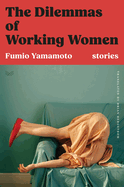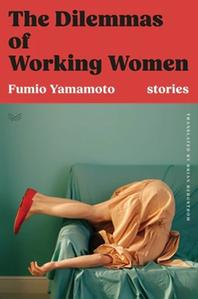
 When the late Fumio Yamamoto's The Dilemmas of Working Women won the coveted Naoki Prize in 2001 in Japan, its bestselling success was "a phenomenon," writes Brian Bergstrom, who meticulously translates this audacious five-story collection populated by women bluntly eschewing expectations. The narrators here--four women, one man--each face complex decisions on the cusp of major change.
When the late Fumio Yamamoto's The Dilemmas of Working Women won the coveted Naoki Prize in 2001 in Japan, its bestselling success was "a phenomenon," writes Brian Bergstrom, who meticulously translates this audacious five-story collection populated by women bluntly eschewing expectations. The narrators here--four women, one man--each face complex decisions on the cusp of major change.
Tradition proves potentially stifling in the titular story when Mito's longtime boyfriend announces on her 25th birthday, " 'Well, I guess it's about time. We can get married.' Not 'Marry me' or 'Let's get married'--he said it as if granting permission." Mito once thought wifehood should happen by 25, but the possibility of actual nuptials only engenders reasons to refuse. Asaoka is a graduate student still living off his parents. The pair "never really had sex": Asaoka relies on professionals; Mito "with someone for whom [she] had no romantic feelings at all." Recognizing "how powerful men were, and how pitiful" helps Mito decide her future.
On the other end of the age spectrum is Maho in "Here, Which Is Nowhere"--the collection's most nuanced story--who's trapped in an endless cycle of caring and serving others: her husband of 21 years, her disgruntled widowed mother, her dismissive almost-adult children. Running the household means she's had to take a part-time job since her husband's salary was halved and still they're "barely scrap[ing] by." Maho's rage builds in increments, but finding some semblance of release does little to improve her daily life.
Among the other stories are a recently divorced woman in "Naked" who's fallen into isolated limbo making stuffed animals, and whose bank balance is nearing zero. In "Planarian," a youthful cancer survivor's obsession with constantly talking about her disease is affecting, even destroying her relationships. The ending "A Tomorrow Full of Love"--the quintet's sweetest, with the single male narrator--moves between an izakaya (bar) owner's unpredictable interactions with his free-spirited live-in lover and his utter devotion to the tween daughter he's allowed to see every three months.
That Yamamoto writes solely in first-person cleverly encourages immediate engagement for readers, creating an instant gateway into the intimacies of these characters' lives. Throughout her fictional universe, marriage is the biggest loser, particularly for women, something to avoid or escape. In upsetting and challenging the venerable institution, many of Yamamoto's empathic characters--even a quarter-century after their debut--remain timeless figures of strength and resilience. --Terry Hong
Shelf Talker: Fumio Yamamoto's superb five-story collection, The Dilemmas of Working Women, eschews and challenges the stifling expectations of traditional women's roles.

